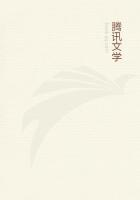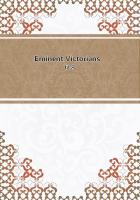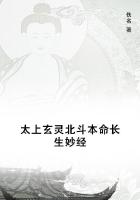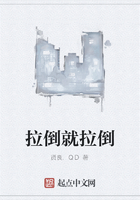MONSIEUR THE CARDINAL.
Poor Gringoire! the din of all the great double petards of the Saint-Jean, the discharge of twenty arquebuses on supports, the detonation of that famous serpentine of the Tower of Billy, which, during the siege of Paris, on Sunday, the twenty-sixth of September, 1465, killed seven Burgundians at one blow, the explosion of all the powder stored at the gate of the Temple, would have rent his ears less rudely at that solemn and dramatic moment, than these few words, which fell from the lips of the usher, "His eminence, Monseigneur the Cardinal de Bourbon."It is not that Pierre Gringoire either feared or disdained monsieur the cardinal. He had neither the weakness nor the audacity for that. A true eclectic, as it would be expressed nowadays, Gringoire was one of those firm and lofty, moderate and calm spirits, which always know how to bear themselves amid all circumstances (~stare in dimidio rerum~), and who are full of reason and of liberal philosophy, while still setting store by cardinals. A rare, precious, and never interrupted race of philosophers to whom wisdom, like another Ariadne, seems to have given a clew of thread which they have been walking along unwinding since the beginning of the world, through the labyrinth of human affairs. One finds them in all ages, ever the same; that is to say, always according to all times. And, without reckoning our Pierre Gringoire, who may represent them in the fifteenth century if we succeed in bestowing upon him the distinction which he deserves, it certainly was their spirit which animated Father du Breul, when he wrote, in the sixteenth, these naively sublime words, worthy of all centuries: "I am a Parisian by nation, and a Parrhisian in language, for ~parrhisia~ in Greek signifies liberty of speech; of which I have made use even towards messeigneurs the cardinals, uncle and brother to Monsieur the Prince de Conty, always with respect to their greatness, and without offending any one of their suite, which is much to say."There was then neither hatred for the cardinal, nor disdain for his presence, in the disagreeable impression produced upon Pierre Gringoire. Quite the contrary; our poet had too much good sense and too threadbare a coat, not to attach particular importance to having the numerous allusions in his prologue, and, in particular, the glorification of the dauphin, son of the Lion of France, fall upon the most eminent ear. But it is not interest which predominates in the noble nature of poets. I suppose that the entity of the poet may be represented by the number ten; it is certain that a chemist on analyzing and pharmacopolizing it, as Rabelais says, would find it composed of one part interest to nine parts of self-esteem.
Now, at the moment when the door had opened to admit the cardinal, the nine parts of self-esteem in Gringoire, swollen and expanded by the breath of popular admiration, were in a state of prodigious augmentation, beneath which disappeared, as though stifled, that imperceptible molecule of which we have just remarked upon in the constitution of poets; a precious ingredient, by the way, a ballast of reality and humanity, without which they would not touch the earth. Gringoire enjoyed seeing, feeling, fingering, so to speak an entire assembly (of knaves, it is true, but what matters that ?) stupefied, petrified, and as though asphyxiated in the presence of the incommensurable tirades which welled up every instant from all parts of his bridal song. I affirm that he shared the general beatitude, and that, quite the reverse of La Fontaine, who, at the presentation of his comedy of the "Florentine," asked, "Who is the ill-bred lout who made that rhapsody?" Gringoire would gladly have inquired of his neighbor, "Whose masterpiece is this?"The reader can now judge of the effect produced upon him by the abrupt and unseasonable arrival of the cardinal.
That which he had to fear was only too fully realized.
The entrance of his eminence upset the audience. All heads turned towards the gallery. It was no longer possible to hear one's self. "The cardinal! The cardinal!" repeated all mouths. The unhappy prologue stopped short for the second time.
The cardinal halted for a moment on the threshold of the estrade. While he was sending a rather indifferent glance around the audience, the tumult redoubled. Each person wished to get a better view of him. Each man vied with the other in thrusting his head over his neighbor's shoulder.
He was, in fact, an exalted personage, the sight of whom was well worth any other comedy. Charles, Cardinal de Bourbon, Archbishop and Comte of Lyon, Primate of the Gauls, was allied both to Louis XI., through his brother, Pierre, Seigneur de Beaujeu, who had married the king's eldest daughter, and to Charles the Bold through his mother, Agnes of Burgundy.
Now, the dominating trait, the peculiar and distinctive trait of the character of the Primate of the Gauls, was the spirit of the courtier, and devotion to the powers that be. The reader can form an idea of the numberless embarrassments which this double relationship had caused him, and of all the temporal reefs among which his spiritual bark had been forced to tack, in order not to suffer shipwreck on either Louis or Charles, that Scylla and that Charybdis which had devoured the Duc de Nemours and the Constable de Saint-Pol.
Thanks to Heaven's mercy, he had made the voyage successfully, and had reached home without hindrance. But although he was in port, and precisely because he was in port, he never recalled without disquiet the varied haps of his political career, so long uneasy and laborious. Thus, he was in the habit of saying that the year 1476 had been "white and black" for him--meaning thereby, that in the course of that year he had lost his mother, the Duchesse de la Bourbonnais, and his cousin, the Duke of Burgundy, and that one grief had consoled him for the other.















